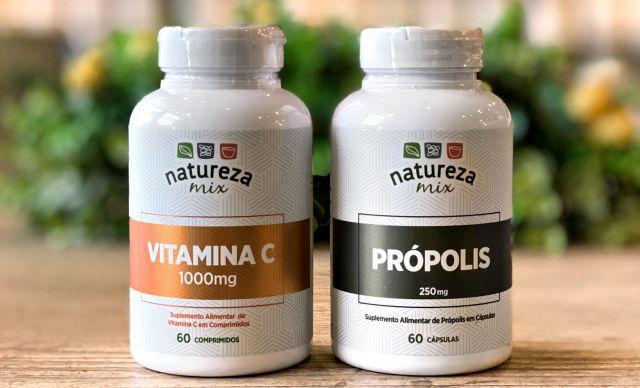
When we talk about vitamins we are used to thinking about substances that we must necessarily take with food. But there is one, there vitamin D, which is present in very few foods and which we actually stock up on thanks to the sun's rays. Precisely for this reason, however, many today have to deal with its deficiency.
In winter it is even there half of the villages to be deficient in vitamin D. The risks they face are more than one, even very different from each other.
Among them is included, for example, osteoporosis, because vitamin D is necessary for bone health. Another is to see the proper functioning of the immune system compromised.
Vitamin D and immune defenses
L'association between vitamin D and immune defenses it was unknowingly exploited as early as the 19th century, when the treatment of tuberculosis involved exposure to light. The benefits of this therapy were not due to the action of the sun on the bacterium responsible for the disease, but to the synthesis of vitamin D induced by light.
Only much later was it discovered that vitamin D receptors are present both on the cells involved ininnate immunity both on those responsible foracquired immunity, and that in the absence of adequate doses of this nutrient increases the risk of autoimmune diseases, such as multiple sclerosis and rheumatoid arthritis.
Today it is known that vitamin D plays a role of defense against infections and that its deficiencies are associated with an increased risk of respiratory infections.
In light of current knowledge, therefore, it is not surprising that precisely in winter, when vitamin D deficiency is more widespread, we tend to get sick more often.
How to fill up on vitamin D
As mentioned, to fill up on vitamin D it is necessary to expose the skin to the sun. In this way the UV-B rays present in the solar radiation promote the production of cholecalciferol (o vitamin D3). Vitamin D3 is then converted into calcifediolo (25(OH)D) and, finally, in the active form capable of exerting positive effects on the immune system, the calcitriolo (1,25(OH)D).
The reduction of time spent outdoors and the use of products containing anti-UV sunscreens to protect the skin from the risk of melanoma lead to reduction of vitamin D synthesis in the skin. For this it may be necessary to take it from the outside.
Le food sources of vitamin D. there aren't many. It is found, for example, in fatty fish (such as salmon), eggs and dairy products. Some foods of plant origin can also provide a certain amount, especially mushrooms. However, vitamin D of plant origin is different from that of animal origin.
Mushrooms can indeed provide the so-called vitamin D2the ergocalciferolo. Foods of animal origin, on the other hand, contain the same form of vitamin D synthesized in the skin thanks to the action of ultraviolet, vitamin D3.
Unfortunately, it is difficult to ensure adequate doses of vitamin D by relying only on the few foods that contain it. Because of this it may be necessary to use supplements; currently the market offers both vitamin D2 and vitamin D3 based products.
Precisely because it is the one produced in the skin, Vitamin D3 is considered to be the most natural form. Not only that, Vitamin D3 is also more bioavailable e more effective compared to vitamin D2: increases the concentration of 25 (OH) D more and binds better to vitamin D receptors.
Finally, vitamin D3 brings with it others as well advantages:
- it is more stable, and has a greater ability to withstand changes in temperature, humidity and storage;
- it is the most used in clinical studies.
How to recognize supplements that provide vitamin D. from natural sources? If in the ingredient list of a vitamin D supplement the only information available is, in fact, "vitamin D", it will most likely be a synthetic vitamin. The citation of a natural source of obtaining the vitamin will guarantee us that the origin is, in fact, natural.
Beware of calcifications
By taking adequate doses of vitamin D it is possible to promote the proper functioning of the immune system by counteracting the risks associated with its deficiencies. However, it is important to remember that high and prolonged doses of vitamin D can be associated with the formation of calcium deposits in soft tissues, for example arterial calcifications.
To avoid this, it is good to prefer supplements that not only contain vitamin D3 but also vitamin K2. Although it is sometimes said that these two vitamins must be taken separately, the data available today suggest that the simultaneous intake of these two nutrients is more effective and allows to protect the health of the arteries, reducing their calcification.
Vitamin K2, in fact, allows calcium to be diverted to the bones and teeth, thus allowing you to make the most of the benefits of taking vitamin D3.
References
Azrielant S, Shoenfeld Y. Vitamin D and the Immune System. Isr Med Assoc J. 2021 Aug;19(8):510-511. PMID: 28825771
Aranow C. Vitamin D and the immune system. J Investig Med. 2011 Aug;59(6):881-6. doi: 10.2310/JIM.0b013e31821b8755
Cesareo R et al. el paesen Association of Clinical Endocrinologists (AME) and el paesen Chapter of the American Association of Clinical Endocrinologists (AACE) Position Statement: Clinical Management of Vitamin D Deficiency in Adults. Nutrients. 2021 Apr 27;10(5). pii: E546. doi: 10.3390/nu10050546
Efsa. EU Register on nutrition and health claims
Lehmann U et al. Bioavailability of vitamin D(2) and D(3) in healthy volunteers, a randomized placebo-controlled trial. J Clin Endocrinol Metab. 2013 Nov;98(11):4339-45. doi: 10.1210/jc.2012-4287
MedlinePlus. Vitamin D
Medscape. Vitamin D: A Rapid Overview. 07/06/20
Panciera N. Vitamin D, half of the villages are deficient: only in autumn the levels rise. La Stampa, 19 July 2021. 07/04/20
van Ballegooijen AJ et al. The Synergistic Interplay between Vitamins D and K for Bone and Cardiovascular Health: A Narrative Review. Int J Endocrinol. 2021;2021:7454376. doi: 10.1155/2021/7454376


























